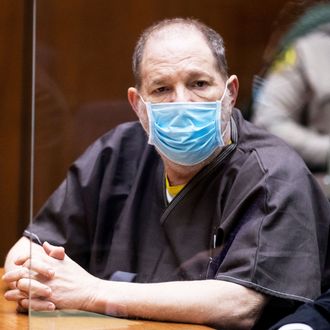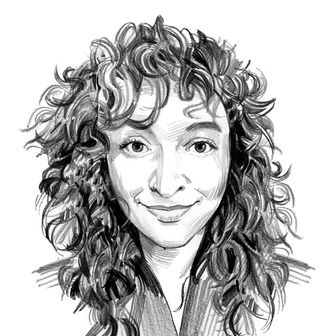
Update, August 24: The New York State Court of Appeals has agreed to hear Harvey Weinstein’s appeal in his rape and sexual assault case. Weinstein fought his conviction in a lower appeals court, but it ruled against him in June. This development means that Weinstein has another chance to fight his conviction, this time in front of New York’s highest state court. In a statement, Weinstein’s spokesman, Juda Engelmayer, said: “We are hopeful and grateful for this rare opportunity and believe that granting Harvey Weinstein and his lawyers leave to make the appeal to the NY Court of Appeals demonstrates that there is, in fact, merit to the appeal. There was plenty wrong with the trial and conviction and Harvey’s attorneys will do what is needed to prove his innocence of the charges.”
Original story follows.
Harvey Weinstein’s sexual-assault conviction was upheld by a New York State appeals court on Thursday, June 2. “We reject defendant’s arguments, and affirm the conviction in all respects,” the appeals court said in its opinion.
Weinstein’s legal team argued his appeal before the Appellate Division, First Department, on December 15, 2021. His appeals lawyer, Barry Kamins, told the five-judge appeals panel the disgraced movie mogul was in a “stranglehold” during his Manhattan state court trial because prosecutors were permitted to introduce a number of allegations that had nothing to do with the charges.
“The jury was overwhelmed by such prejudicial, bad evidence. This was a trial of Harvey Weinstein’s character — that people were making him out to be a bad person,” Kamins argued. “Even if the [prosecution] had successfully identified a proper basis for admission of prior acts — which it did not — [the] probative value was clearly outweighed by its prejudicial effect.” Kamins continued, “He was in a legal vise in this case.”
Valerie Figueredo, an appeals attorney with the Manhattan DA’s office, hit back, maintaining that testimony from Young, Dunning, and Wulff was “directly probative of [Weinstein’s] state of mind.”
The panel questioned how bringing in so many uncharged bad acts didn’t bias jurors against Weinstein. “Here come three other women who claim I did the same thing to them, but I’m not being charged with that — that’s prejudicial,” one jurist said. “You know what? There are trials every day where we have defendants who have a rap sheet a mile long — a mile long; they’ll have 20 felony convictions on their rap sheet — and I’ve seen no judge say, ‘Go ahead, go to town on all of them,’” another judge reflected. “They usually just let one or two in.”
Weinstein’s team has also argued that Burke’s decision to allow a juror who had penned a novel involving predatory older men to sit on the jury thwarted his right to be tried “by an impartial jury.”
“Juror No. 11’s fixation with matters of consent and predatory older men, and her lack of candor about it, raises troubling questions about whether she prejudged Mr. Weinstein’s guilt and whether she had a personal agenda to see him convicted” that “single-handled obliterated” the judicial process, Weinstein’s attorneys wrote in appeals papers.
“When this judge refused to discharge this juror, it was a reversible error,” Kamins said during Weinstein’s appeal proceeding.
Weinstein was found guilty of criminal sexual act in the first degree and rape in the third degree on February 24, 2020, following a nearly seven-week trial. Weinstein was convicted of sexually assaulting two women: Jessica Mann and Mimi Haleyi. Mann, once an aspiring actress, testified that Weinstein raped her at a Midtown East hotel in early 2013. Haleyi said that Weinstein forcibly perform oral sex on her in the summer of 2006 at his Soho home.
Weinstein, now 69, was found not guilty of one first-degree rape count and two predatory-sexual-assault counts. Justice James Burke sentenced Weinstein to 23 years in prison on March 11, 2020.
Weinstein’s lawyers submitted their appeal on April 5, 2021, fighting against his conviction and sentence. Their arguments, both in the appeals paperwork and appeals proceedings, were largely rooted in claims that Burke erred in allowing prosecutors to discuss so much evidence about Weinstein’s alleged prior bad acts. These uncharged accusations of sexual misconduct included testimony from Dawn Dunning, Tarale Wulff, and Lauren Young. Weinstein is currently jailed in Los Angeles where he also faces sexual-assault charges.


